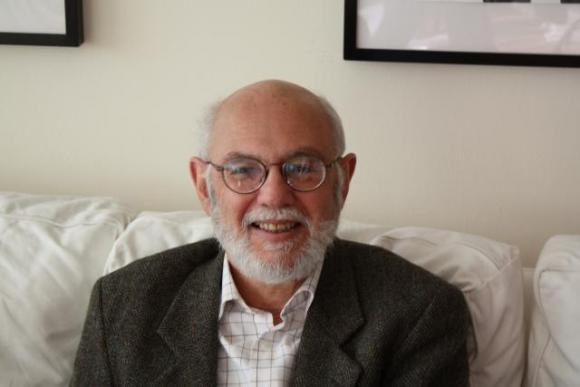PROVIDENCE, R.I. [Brown University] — The American Academy of Arts and Sciences (AAAS) today announced the election of Brown University Professor David Konstan as a fellow of the society, recognizing him as among the world’s leading thinkers in the sciences, the humanities and the arts, business, public affairs, and the nonprofit sector. He is among the 210 new fellows and 19 Foreign Honorary Members to join one of the nation’s most prestigious honorary societies and a center for independent policy research.
Konstan is the John Rowe Workman Distinguished Professor of Classics and the Humanistic Tradition and professor of comparative literature. Teaching at Brown since 1987, he has focused his work on ancient Greek and Latin literature and on classical and Hellenistic philosophy. Konstan has written books on the emotions of the ancient Greeks, friendship in the classical world, and the notion of pity in both pagan and Christian thought. He has also worked on ancient Greek physics and atomic theory and on ancient literary theory.
The scholars, scientists, jurists, writers, artists, civic, corporate and philanthropic leaders elected to the AAAS come from 28 states and 11 countries and range in age from 33 to 83. They represent universities, museums, national laboratories, private research institutes, businesses, and foundations. This year’s group also includes Nobel laureates and recipients of the Pulitzer and Pritzker prizes, MacArthur Fellowships, Academy, Grammy, and Tony awards, and the National Medal of Arts.
In addition to Konstan new fellows include the co-winner of the 2007 Nobel Prize in Medicine or Physiology Mario Capecchi; Civil War historian James McPherson; actors Dustin Hoffman and James Earl Jones; and U.S. Secretary of Defense Robert Gates. The 19 foreign honorary members include 1993 Nobel Peace Prize laureate Nelson Mandela; U2 lead singer and advocate for humanitarian causes Bono; British actress Judith Dench; Irish poet Michael Longley; and Indian cultural historian Romila Thapar.
The Academy, established in 1780 by founders of the nation, undertakes studies of complex and emerging problems. Current projects focus on science, technology and global security; social policy and American institutions; the humanities and culture; and education. The Academy’s membership of scholars and practitioners from many disciplines and professions gives it a unique capacity to conduct a wide range of interdisciplinary, long-term policy research.
“Since 1780, the Academy has served the public good by convening leading thinkers and doers from diverse perspectives to provide practical policy solutions to the pressing issues of the day,” said Leslie Berlowitz, chief executive officer and William T. Golden Chair. “I look forward to welcoming into the Academy these new members to help continue that tradition.”
“These remarkable men and women have made singular contributions to their fields, and to the world,” said Academy President Emilio Bizzi. “By electing them as members, the Academy honors them and their work, and they, in turn, honor us.”
The new class will be inducted during a ceremony Oct. 10, 2009, at the Academy’s headquarters in Cambridge, Mass.
Since its founding by John Adams, James Bowdoin, John Hancock and other scholar-patriots, the Academy has elected as members the finest minds and most influential leaders from each generation, including George Washington and Benjamin Franklin in the 18th century, Daniel Webster and Ralph Waldo Emerson in the 19th, and Albert Einstein and Winston Churchill in the 20th. The current membership includes more than 250 Nobel laureates and more than 60 Pulitzer Prize winners.
A complete list of newly elected fellows and honorary foreign members with their affiliations is available online at www.amacad.org/enewsletter/a.pdf

